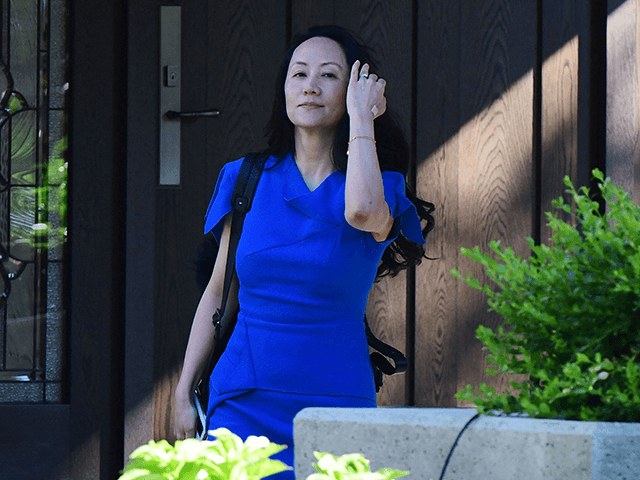China’s state-run Global Times on Wednesday admitted two recent harsh sentences in high-profile cases were meant to intimidate Canada and other nations out of allying with the United States.
On Tuesday, a Chinese court upheld the death sentence imposed on Robert Lloyd Schellenberg, a Canadian citizen accused of drug trafficking in China. On Wednesday, a Chinese court sentenced Canadian businessman Michael Spavor to 11 years in prison on espionage charges.
The Canadian government angrily denounced both sentences as political acts of retaliation and blackmail for Canada’s detention of Meng Wanzhou, the chief financial officer of telecommunications giant Huawei wanted on fraud and sanctions evasion charges in the United States. Meng’s lengthy extradition hearings appear to be entering their final stages.
After some chest-thumping about China’s need to demonstrate “resolve and determination to safeguard its independent judicial system and national interests despite baseless attacks and mounting pressure from the West,” the Global Times said the harsh sentences for Schellenberg and Spavor were political actions intended to send threatening messages to Canada and other U.S. allies:
Chinese experts on foreign affairs pointed out that the sentence conveyed a signal to other US allies that they will pay heavy price if they insist on being the US’ “running dogs” in its anti-China camp and their citizens would face harsh punishment if they commit crimes in China as their nationality is not a talisman.
After chastising the “blind” and “stubborn” governments of Canada, Australia, and the United States for repeating “lousy cliches” about Beijing holding these Canadians hostage, the Global Times swung back to threatening the Canadians to drop all charges against Meng if they ever want to see their hostages again:
Meanwhile, some Canadian lawmakers and officials have been constantly calling for the release of Meng as they believe Meng’s case was highly politicized that led to the detention of the two Canadian nationals in China.
Former Canadian lawmakers and diplomats urged Trudeau to step in to end the extradition trial of Meng, AFP reported in June 2020, as they consider the case as a bargaining chip for releasing Kovrig and Spavor. They said the detention of Meng was a major cause of the souring China-Canadian ties, urging in an open letter that Trudeau should release Meng.
The Chinese Communist paper dangled a little hope before the Trudeau administration, coyly noting that final proceedings against Schellenberg, Spavor, and fellow Canadian hostage Michael Kovrig could be delayed by the coronavirus, and a Chinese court just might see its way clear to deporting Spavor before his 11-year jail sentence begins.
“The icy relationship between Beijing and Ottawa will only be resolved if Canada is willing to commit itself to pushing forward bilateral ties and distancing itself from the poisonous impact of U.S.’ hostile policy toward China,” the Global Times threatened.
Canadian Foreign Minister Marc Garneu said on Wednesday the fate of Michael Kovrig, a former diplomat, remains uncertain. Kovrig was slapped with murky espionage charges similar to those leveled against Spavor.
“We don’t know when the verdict will be rendered regarding Michael Kovrig. We are waiting to see,” Garneu said. “We know that his trial was supposed to happen shortly after Michael Spavor, but it’s the Chinese authorities that will decide when.”
“The Chinese government has indicated that there would be no progress as long as Ms. Meng is in Canada,” former Canadian ambassador to China Guy Saint-Jaques said in an interview on Tuesday.
Chinese Foreign Ministry spokeswoman Hua Chunying denied there was any political angle to the Schellenberg, Spavor, and Kovrig cases and lashed out against Canadian officials for suggesting otherwise.
“Canada is ganging up with a handful of countries to confuse right with wrong in disregard of facts. They point fingers at relevant courts’ lawful handling of cases involving Canadian citizens in China, which has gravely interfered in China’s judicial sovereignty and severely violated the spirit of the rule of law. China strongly condemns this,” Hua raged.
“A word for the Canadian side: the attempt to conduct ‘megaphone diplomacy’ and gang up on China failed in the past, and will never have its way in the future. We urge relevant countries to follow the spirit of the rule of law, respect China’s judicial sovereignty, and stop making any irresponsible remarks,” she added.

COMMENTS
Please let us know if you're having issues with commenting.